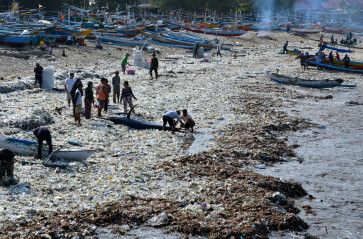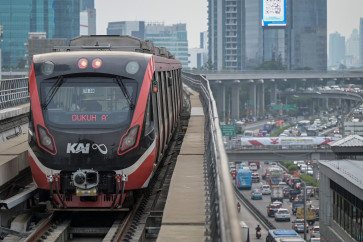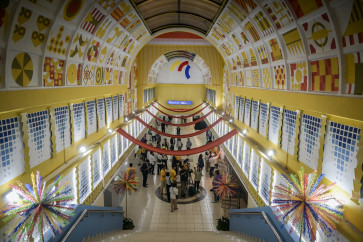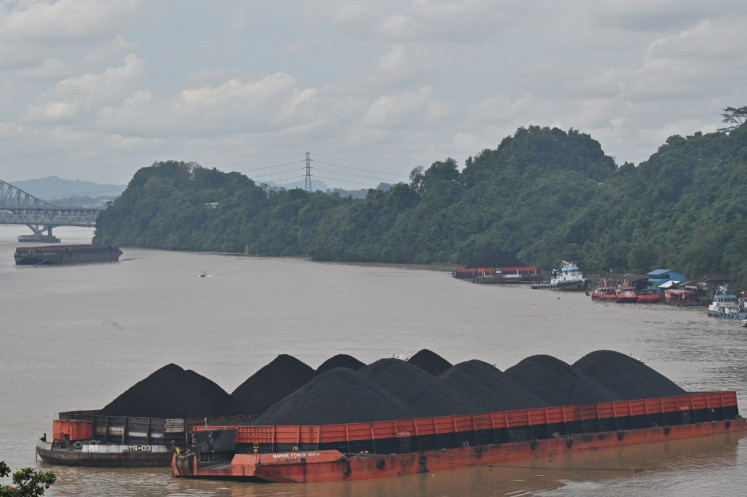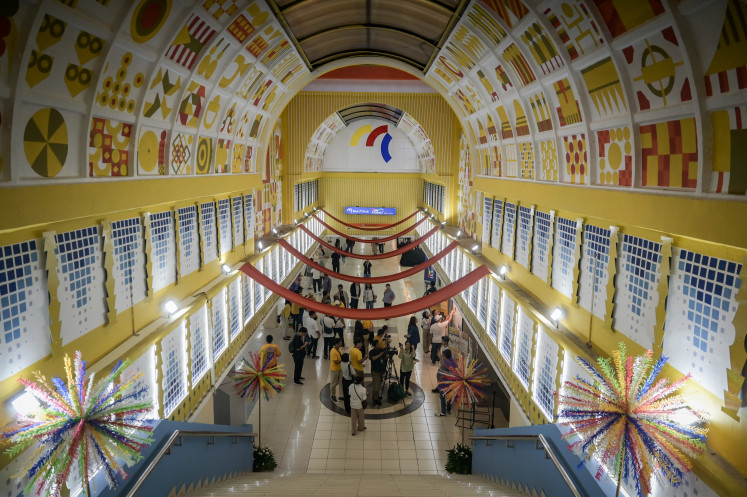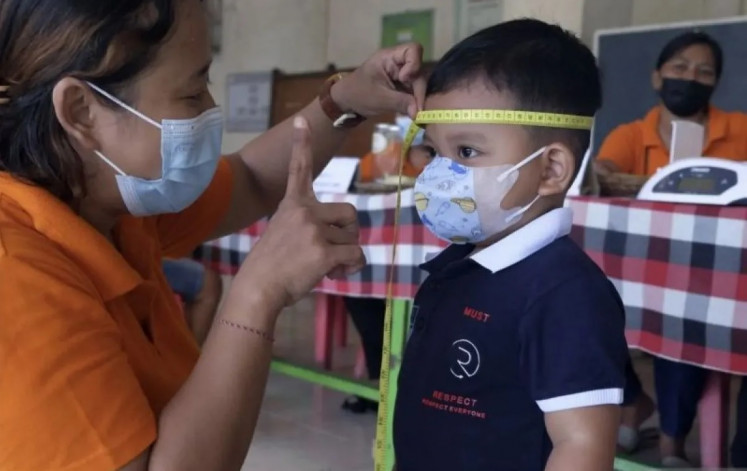Jokowi to remain aloof from world stage
A second term in office usually gives an incumbent head of state the freedom to be more active internationally and pursue a grander foreign policy agenda
Change text size
Gift Premium Articles
to Anyone

A
second term in office usually gives an incumbent head of state the freedom to be more active internationally and pursue a grander foreign policy agenda.
But staying true to his low-profile and cautious style of governing, President Joko “Jokowi” Widodo has said that he would not make significant changes in how he would deal with international politics during his second term and that his main focus for the next five years would remain domestic issues at home.
In response to a question from The Jakarta Post on Tuesday on whether he planned to play a greater role in directly leading the country’s diplomatic efforts in his final term in office, Jokowi answered, “The thing is, there are much more pressing domestic issues [that need to be dealt with].”
“I think domestic [affairs] requires more attention,” he said.
However, Jokowi, who will likely be sworn in for a second term in October, said he would continue to be engaged in several major international forums, such as the G20 and ASEAN summits.
Jokowi is expected to leave for Osaka, Japan, later this month for a crucial G20 summit. United States President Donald Trump and Chinese President Xi Jinping are also scheduled to attend the summit.
As for other international summits, Jokowi maintained that Indonesia would continue to play a part, even when he was absent. “For [other] international [meetings], we will continue to send teams [of delegates], including those who handle investment, exports and economic affairs. Both small and big teams,” he said.
Since taking office in late 2014, Jokowi has taken a low-profile approach when dealing with diplomacy and focused most of his attention on building infrastructure and other development programs at home.
In the past four years, Jokowi has been very selective about making appearances at international forums, and has allowed Vice President Jusuf Kalla to take his place at a number of high-profile summits like the United Nations General Assembly. It remains to be seen if Vice President-elect Ma’ruf Amin, who is not known as a politician with experience in international diplomacy, will take over the job from Kalla.
Jokowi’s approach to foreign policy stands in contrast to his predecessor Susilo Bambang Yudhoyono, who was keen on making appearances at international summits. However, Yudhoyono’s penchant for summitry was a subject of criticism, with some observers saying that such pageantry brought little tangible economic benefits.
Dewi Fortuna Anwar, an international relations expert from the Indonesian Institute of Science, urged Jokowi to change his attitude toward international diplomacy, despite his lack of interest in foreign policy issues.
Dewi said that although Jokowi could be selective about which international summits he attended, he should give priority to high-level meetings, particularly at the regional level.
Amid the growing rivalry between the US and China, which has caused geopolitical turbulence in the Indo-Pacific region, Indonesia must play a strategic role and show its leadership in ASEAN while also joining hands with other middle-power countries to promote multilateralism, said Dewi, who served as a foreign policy advisor to Indonesia’s third president Burhanudin Jusuf Habibie
During the interview with the Post, Jokowi also said that Indonesia could in fact reap benefits from the ongoing trade war between the US and China by attracting more foreign direct investment from the two economic superpowers.
He said he had dispatched Coordinating Maritime Affairs Minister Luhut Panjaitan to lead a trade delegation to the US to discuss possibilities for Indonesia to export more commodities, including furniture and textiles, to the economic giant, which is looking to fill the absence of imports from China.
Jokowi said the government was also seeking to explore opportunities for China to shift its production bases to Indonesia, which could “provide employment opportunities as wide as possible for the people”.

